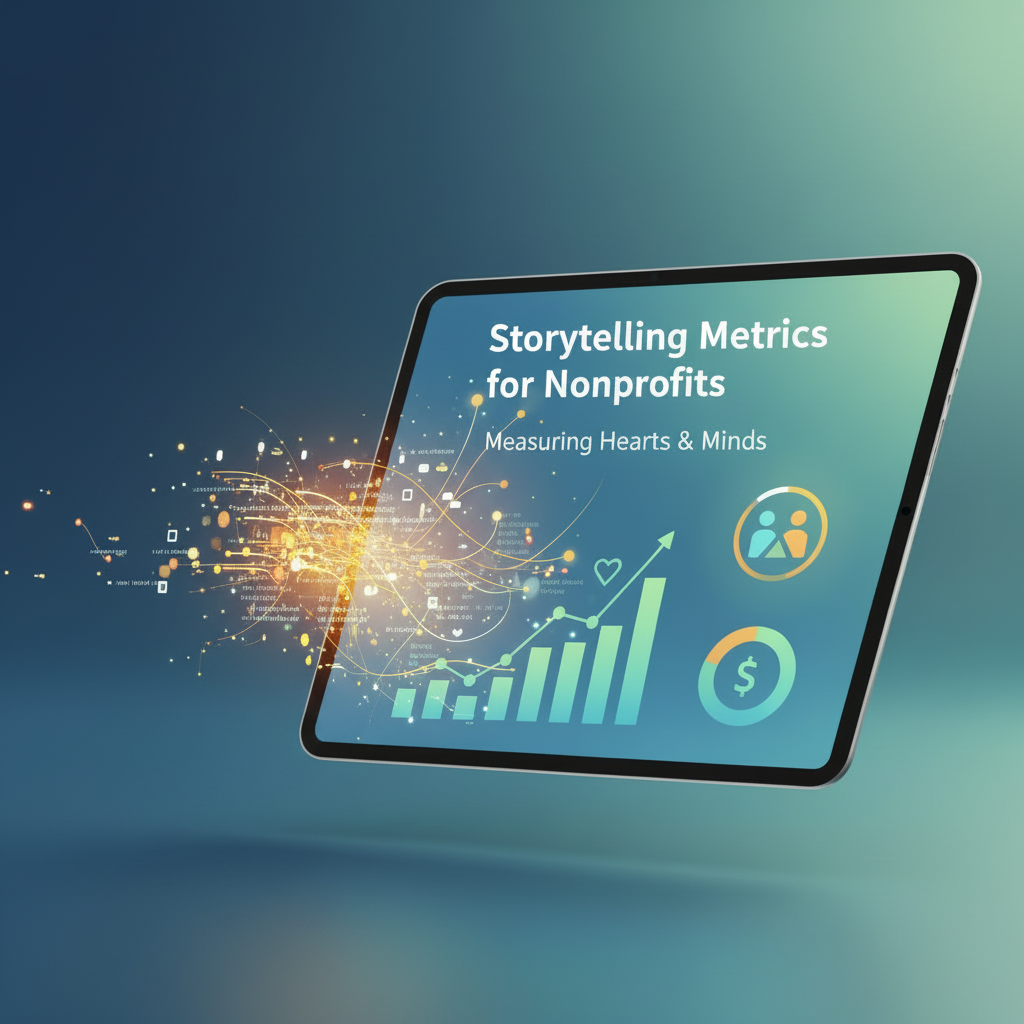TED Talks That Matter: Social Justice Edition

TED talks on social justice have become a valuable resource for anyone seeking to understand and engage with the pressing issues of equality, rights, and fairness today. Whether you're a non-profit marketer, a social impact strategist, or someone passionate about making a difference, these talks provide essential insights into the challenges and solutions within social justice movements.
Here's a quick rundown of why these talks matter:
- Inspiring Stories: Hear accounts from those leading change across the globe.
- Diverse Perspectives: Gain new views on complex issues from varied cultural and socio-economic backgrounds.
- Innovative Ideas: Learn about bold and creative solutions to social injustices.
- Educational Resources: Improve your understanding of key social justice concepts.
These talks do more than just inform; they inspire action. From Eleanor Thompson's empowering message for introverts to Buse Çetin's exploration of AI's role in justice, TED offers a platform that lifts crucial dialogue and helps turn ideas into impact.

Understanding Social Justice through TED Talks
Social justice is about fairness and equality within society. It's a pursuit that involves tackling issues like discrimination, inequality, and systemic injustice. TED Talks offer a unique window into these topics, providing both inspiration and education.
The Pursuit of Justice
Justice is a key theme in many TED talks on social justice. Speakers share stories of overcoming obstacles and fighting for what is right. For example, social justice lawyer Eleanor Thompson shares insights from her activism in Sierra Leone. She highlights the importance of courage and determination in the pursuit of justice, especially for introverts who might feel hesitant to step into the spotlight.
Striving for Equality
Equality is at the heart of social justice. TED speakers often explore how different groups strive for equal rights and opportunities. These talks highlight the struggles and triumphs of marginalized communities, providing a deeper understanding of the ongoing fight for equality.
Buse Çetin, in her talk "Why is AI a Social Justice Issue?", examines how algorithms can perpetuate inequality. She urges us to develop "algorithmic literacy" to ensure that technology reflects our true selves and does not reinforce existing biases.

Addressing Social Justice Issues
TED Talks also dig into specific social justice issues, offering solutions and insights. Topics range from climate justice to economic inequality, each presented with a focus on actionable change. These talks not only educate but also empower viewers to become allies and advocates for systemic change.
For those looking to understand and engage with social justice, TED Talks are a valuable resource. They offer a blend of personal stories, expert insights, and practical advice, making complex topics accessible and inspiring action toward a more just world.
Top TED Talks on Social Justice
When discussing TED Talks on social justice, several influential speakers come to mind. These individuals have used the TED platform to shed light on critical issues, inspiring audiences worldwide to take action.
Bryan Stevenson: Fighting for Justice
Bryan Stevenson, a renowned lawyer and social justice activist, delivered a powerful TED Talk titled "We need to talk about an injustice." In his talk, Stevenson highlights the deep-rooted injustices within the American criminal justice system. He shares poignant stories of his work with marginalized communities, emphasizing the importance of proximity to those affected by injustice. Stevenson's call for empathy and understanding challenges viewers to rethink their perceptions of justice and equality.
Melinda Briana Epler: Building Inclusive Cultures
Melinda Briana Epler's TED Talk, "3 ways to be a better ally in the workplace," focuses on the role of allyship in promoting social justice. Epler shares practical strategies for creating inclusive environments, stressing the importance of listening and supporting marginalized voices. Her insights are particularly valuable for those looking to foster diversity and inclusion within their organizations. Epler's talk is a reminder that everyone can play a part in driving systemic change.
Buse Çetin: The Intersection of AI and Social Justice
Buse Çetin's TEDx talk, "Why is AI a Social Justice Issue?", explores the impact of artificial intelligence on social equity. Çetin discusses how algorithms can perpetuate biases, leading to social injustices. She advocates for "algorithmic literacy," encouraging individuals to critically assess the data and algorithms that shape our digital lives. Çetin's talk underscores the need for technology to reflect the diversity and complexity of human experiences.

These TED Talks on social justice not only highlight pressing issues but also offer pathways for action. Each speaker provides unique insights into how we can collectively work toward a more equitable society. Whether through legal reform, workplace allyship, or technological scrutiny, these talks inspire us to contribute to the fight for justice and equality.
Why AI is a Social Justice Issue
Artificial Intelligence (AI) is changing our world, but it also raises important social justice concerns. Buse Çetin, in her insightful TEDx talk, "Why is AI a Social Justice Issue?", emphasizes the need for algorithmic literacy. This means understanding how algorithms work and how they can impact our lives.
One key issue is data reflection. The data used to train AI systems often mirrors societal biases. If biased data is fed into an algorithm, the output can be skewed, perpetuating existing inequalities. For instance, an algorithm used for job applications might favor certain demographics over others if its training data is biased.
Social media algorithms are another area of concern. These algorithms decide what content we see, shaping our perceptions and interactions. They can create echo chambers, reinforcing existing beliefs and potentially spreading misinformation. Çetin encourages us to question whether the data collected about us truly reflects who we are and to be cautious about the digital footprints we leave behind.
By fostering algorithmic literacy, individuals can better understand and challenge these systems. This is crucial for ensuring that AI technology is used ethically and equitably, reflecting the diverse experiences of all people. Exploring these topics helps us see why AI is not just a technical issue but a profound social justice challenge.
How to Address Social Justice Issues
Addressing social justice issues requires a collective effort from individuals, organizations, and society as a whole. Here are three key ways to tackle these challenges:
Organizational Responsibility
Organizations play a crucial role in promoting social justice. They must take responsibility for creating equitable environments. This means implementing policies that ensure diversity and inclusion. It also involves providing training to help employees recognize and combat biases. Organizations like Narratives support groups that advocate for social justice, showing how they can be powerful allies in this fight.
Allyship
Being an ally means supporting marginalized communities in their fight for equality. Allies listen, learn, and use their privilege to amplify the voices of those who are often unheard. Melinda Briana Epler, a TED speaker, emphasizes the importance of allyship in creating meaningful change. By standing with those who face discrimination, allies help break down barriers and foster a more inclusive society.
Systemic Change
To achieve lasting social justice, systemic change is essential. This involves addressing the root causes of inequality, such as discriminatory laws and practices. Change can start with small steps, like advocating for fair policies and holding institutions accountable. However, it also requires a broader shift in societal attitudes and structures. By working together, individuals and organizations can drive the systemic changes needed to create a just world for everyone.
These approaches highlight how both individual actions and organizational efforts are vital in addressing social justice issues. By understanding and implementing these strategies, we can all contribute to a fairer and more equitable society.
Frequently Asked Questions about TED Talks on Social Justice
What are the best TED Talks on social justice?
TED Talks offer a wealth of knowledge on social justice issues. Some standout talks include:
Bryan Stevenson: Known for his powerful storytelling, Stevenson discusses the justice system and the need for reform. His talk sheds light on the harsh realities faced by marginalized communities and encourages action to address these injustices.
Melinda Briana Epler: Epler's talk focuses on the importance of allyship. She shares insights on how individuals can support marginalized groups by being allies, emphasizing the role of listening and amplifying unheard voices.
Buse Çetin: In her talk, Çetin explores why AI is a social justice issue. She highlights the potential biases in algorithms and urges us to develop "algorithmic literacy" to better understand how data can misrepresent individuals.
These talks are not just informative; they inspire action and provide practical steps to contribute to social justice.
How can TED Talks help in understanding social justice?
TED Talks are a great resource for understanding social justice because they:
Simplify Complex Issues: Speakers break down complicated topics into easy-to-understand concepts. This makes it easier for everyone to grasp the basics of social justice.
Provide Diverse Perspectives: TED Talks feature speakers from various backgrounds, offering a wide range of experiences and insights. This diversity helps listeners understand social justice from multiple angles.
Inspire Action: Many talks include real-life stories and examples that motivate viewers to take action and make a difference in their communities.
Encourage Critical Thinking: Talks like those from Buse Çetin encourage us to think critically about issues like AI and data. This helps in developing a more nuanced understanding of social justice challenges.
What current social justice movements are discussed in TED Talks?
TED Talks cover a wide array of social justice movements. Some of the prominent ones include:
Criminal Justice Reform: Bryan Stevenson discusses the need for changes in the justice system, highlighting issues like mass incarceration and racial bias.
Allyship and Inclusion: Melinda Briana Epler's talk emphasizes the role of allies in promoting inclusion and supporting marginalized communities.
Digital Justice: Buse Çetin addresses the impact of technology and algorithms on social justice, urging for more awareness and action in this digital age.
These topics show how TED Talks not only inform but also connect us to ongoing social justice movements, urging us to be part of the change.
Conclusion
As we wrap up our exploration of TED Talks on social justice, it's clear that these talks are more than just presentations. They are powerful tools for education, inspiration, and change. At Narratives, we believe in the transformative power of digital storytelling to amplify these essential messages.
Our mission is to partner with non-profits and purpose-driven organizations to bring underrepresented voices to the forefront. By creating high-quality, emotionally engaging multimedia content, we help these organizations share their impactful stories. This not only inspires action but also builds trust and improves visibility for causes that matter.
Through non-profit partnerships, we aim to lift the stories that might otherwise go unheard. Our approach focuses on community-driven storytelling, ensuring that the narratives are authentic and resonate with audiences.
If you're interested in learning more about how we can help your organization tell its story, visit our media page for more information.
In the end, TED Talks and digital storytelling share a common goal: to foster understanding and inspire change. Together, we can make a difference, one story at a time.


